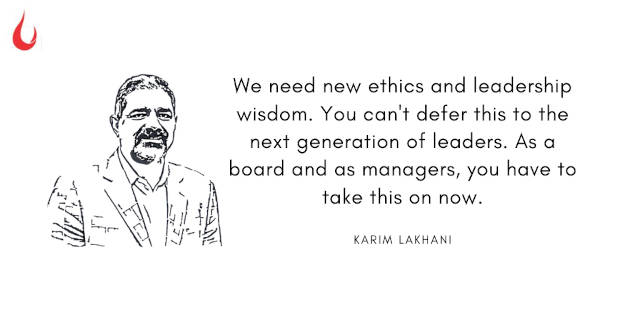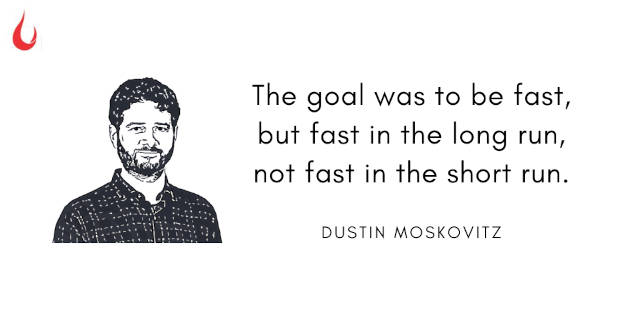[Image by Gerd Altmann from Pixabay]
Good morning,
In his book How to be a leader, serial entrepreneur Martin Bjergegaard devotes a chapter on why culture matters in an organisation. What emerges is a distilled outcome basis his experience and conversations with other entrepreneurs.
He goes on to write: “‘Culture is a shared system of values, beliefs, norms and accepted behaviours. The sharing part is the most critical element. When leaders don’t define a culture, the group will define it with the values, beliefs and behaviours they are willing to tolerate from each other,’ she explains.
“Metaphors are a great way to reflect on business phenomena, giving us a degree of perspective. Susan tells us that the metaphor most commonly used at USHG to help new managers understand the notion of culture is the river. Imagine the water in a river representing the people that are part of your organisation. There’s plenty of room for everyone to swim around freely, to be creative and express their unique selves. But the water all flows in one direction and shouldn’t flow over the riverbanks.
“The boundaries of culture are represented by the riverbanks. Let’s put this in a broader context. If we follow the river’s ebb and flow we’ll see that all rivers eventually surrender their waters into a sea or an ocean. Similarly, the culture we create in our organisations flows into the wider body of our economic and social landscapes. As such, the culture you create in your organisation matters, not just to your employees and stakeholders. It makes for a better society and a better world. This is a lesson every leader and every aspiring leader should take note of.”
Have a good day.
In this issue
- Skills to thrive in tomorrow’s organisations
- Getting the culture right
- Tech tales
Have a lovely day!
Skills to thrive in tomorrow’s organisations
In an interview with Roland Berger’s Think:Act Magazine, Harvard professor Karim Lakhani says the new tech skills such as statistics, programming and machine learning are as important for executives today, as finance and accounting have been. “Not that you will become a PhD data scientist. But you need to understand what these capabilities enable you to do and what their limitations are,” Lakhani said.

This has to happen across the organisation. The article points out to Royal Dutch Shell which “is expanding an online program to teach AI skills. So far 2,000 of its 82,000 employees have expressed interest or have been approached to participate. The online courses are offered by learning platform Udacity, which has rolled out an ‘AI leadership program’ targeted at executives who want to learn how to better communicate with their data scientists and understand potential use cases and problems. The latter is important since these novel digital operating models come with risks and responsibilities that go beyond managing change at one company.”
Dig Deeper
- Read: Automation and data-driven algorithms are the necessary building blocks for smart reinvention
- Watch Founding Fuel Masterclass on platforms Understanding platform power—disruption or destruction?
A lot of learning can happen and be enabled at home. It’s one of the themes that will be discussed in our next episode of Talkin’ ‘Bout My Generation on Saturday, August 29 at 7:30 PM on Facebook Live. In the episode, you will meet mother-son duo Amrita Chowdhury and Shoumik Chowdhury, and hear them discuss how to stoke a love for frontier science and what it takes to commit to the long and hard journey of study, research and cutting-edge innovation. Register here. (In case you missed it, here’s Shoumik’s essay My leap into quantum computing)
Getting the culture right
Back in 2004, when he was a 19-year-old Harvard undergrad, Dustin Moskovitz helped Mark Zuckerberg start Facebook and thrived in the company’s "move fast and break things" culture. A Forbes article details how he took a very different approach when he co-founded Asana along with Justin Rosenstein.

But making that change is not easy, and the co-founders had to work hard to get it right. The Forbes piece explains:
“Internally, Moskovitz and Rosenstein took their time crafting their idealised corporate culture. They interviewed experts, brought in executive coaches and tapped a diversity-and-inclusion officer and a ‘head of people’ over the years to get it just right. Moskovitz, who spent years studying Buddhism and leadership strategies, set up a company org chart with himself at the bottom, to represent the trunk of the company tree. Asana eschews traditional executive titles and instead makes people heads of a particular topic or business outcome. Moskovitz says it’s only right that a company focused on better teamwork invest in it as well: ‘We want to practice what we preach, figure out what’s best and export that.’”
Dig Deeper
Tech tales

Tell us about the interesting stories your children ask. Head to our Slack channel.
And if you missed previous editions of this newsletter, they’re all archived here.
Bookmark Founding Fuel’s special section on Thriving in Volatile Times. All our stories on how individuals and businesses are responding to the pandemic until now are posted there.
Warm regards,
Team Founding Fuel

